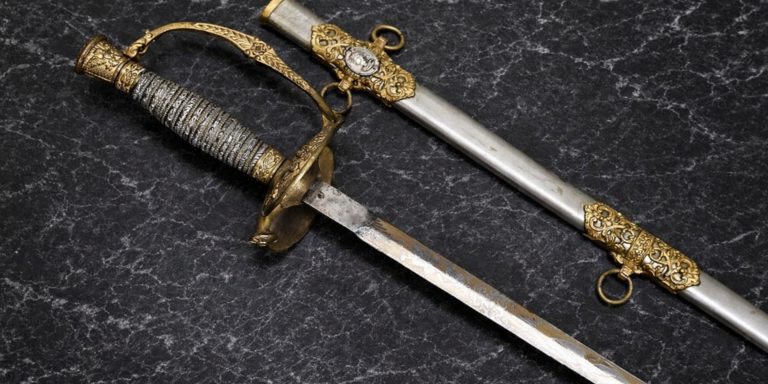
The Venerable Bede (c. 673–735) stands as one of the greatest intellectual figures of early medieval Europe. A monk of Northumbria, he is remembered not only for his devotion to Christian learning but also for his remarkable contributions to history, science, and theology. His writings shaped how medieval Europe understood time, history, and the past of the English people.
To a historian, Bede’s importance lies in his rigorous use of sources, his careful attention to chronology, and his ability to weave both faith and fact into a coherent narrative. He provides us with a rare window into the world of Anglo-Saxon England.
Early Life and Monastic Vocation
Bede was born in the Anglo-Saxon kingdom of Northumbria, probably near Jarrow or Monkwearmouth. At the age of seven, he was placed under the care of the twin monasteries of Wearmouth and Jarrow, founded by Benedict Biscop. Here he spent the rest of his life, immersed in prayer, study, and writing.
His daily rhythm was shaped by monastic discipline, but Bede’s vocation went beyond devotion. His passion for learning, supported by one of the most extensive libraries in Western Europe at the time, allowed him to become a true encyclopaedist.
Works and Achievements
The Ecclesiastical History of the English People
Bede’s most famous work is the Historia Ecclesiastica Gentis Anglorum (731). This monumental history traces the Christianisation of England, recounts the deeds of kings and bishops, and records pivotal events such as the mission of Augustine of Canterbury.
For historians, it is a cornerstone source for early English history, offering detail and chronology unmatched elsewhere. Bede was careful to cite sources, correspond with churchmen across the British Isles, and verify oral traditions. His commitment to accuracy is striking for the period.
Scientific and Theological Writings
Bede was more than a historian. He wrote extensively on biblical exegesis, hagiography, poetry, and natural science. His works on computus, the calculation of time and Easter, reveal an advanced understanding of astronomy and mathematics. These texts shaped medieval thought on timekeeping and were used across Christendom.
Influence on Language and Learning
Bede also contributed to the development of Latin scholarship in England. He is credited with popularising the use of the terms Anno Domini (AD) and Before Christ (BC) to reckon years, a system that remains in widespread use.
Bede’s Historical Method and Sources
What distinguishes Bede from many of his contemporaries is his careful approach to sources. He did not simply record hearsay but strove to weigh evidence, correspond with witnesses, and compare accounts.
- Documentary Evidence: Bede had access to charters, papal letters, and monastic records preserved at Wearmouth-Jarrow. These gave authority to his chronology.
- Oral Testimony: He often relied on accounts from travellers, clergy, and local communities, while making clear when he could not fully verify a story.
- Correspondence with Churchmen: Bede wrote to bishops and abbots across England, obtaining details on regional events. The accuracy of his information was strengthened by these exchanges.
- Critical Method: Unlike many writers of his age, Bede distinguished between tradition, miracle stories, and more secure historical facts. He used phrases such as “it is said” when reporting uncertain material, a rare form of scholarly caution for the period.
This measured approach has earned him the reputation as one of the first true historians of Europe.
Timeline of Bede’s Life and Works
| Year | Event / Work | Notes |
|---|---|---|
| c. 673 | Birth of Bede in Northumbria | Exact birthplace uncertain, likely near Jarrow. |
| 680 | Sent to Monkwearmouth monastery | Entrusted to Benedict Biscop at around age 7. |
| 682 | Transfer to Jarrow monastery | Placed under Abbot Ceolfrith’s care. |
| 691 | Ordained as deacon | At around 19 years old, unusually young for ordination. |
| 703 | Ordained as priest | Marked his full entry into clerical life. |
| c. 700–720 | Early biblical commentaries | Focused on Genesis, the Gospels, and Acts. |
| 703–731 | Works on computus | Influential treatises on calculating Easter and time. |
| 716 | Lives of St. Cuthbert and other saints | Hagiographies blending history and devotion. |
| 731 | Completion of Ecclesiastical History of the English People | His most famous work, chronicling England’s conversion and early kings. |
| 735 (May 26) | Death of Bede at Jarrow | Died after completing a vernacular translation of the Gospel of John. |
| Posthumous | Reputation grows | Soon honoured as “Venerable”; canonised centuries later. |
Reputation and Legacy
Even during his lifetime, Bede was revered for his scholarship and piety. After his death in 735, he was referred to as “Venerable,” a title that eventually became inseparable from his name. In 1899, the Catholic Church declared him a Doctor of the Church, the only Englishman to be so honoured.
For historians, his enduring value lies in the way he blended narrative with critical examination. He preserved fragments of older texts now lost and ensured that the story of early England was not confined to myth but grounded in chronology and evidence.
Bede’s influence extended well beyond England. Carolingian scholars drew heavily on his works, and his methods of learning shaped monastic education across Europe. His combination of faith and rational inquiry embodies the intellectual spirit of early medieval Christianity.
Key Events Chronicled by Bede
| Event | Date (approx.) | Details | Why Bede Records It |
|---|---|---|---|
| Arrival of the Romans in Britain | 1st century AD | Recounts Roman conquest, rule, and eventual withdrawal. | Provides historical background for Britain before Christianity. |
| Coming of the Anglo-Saxons | 5th century | Chronicles the settlement of Angles, Saxons, and Jutes after Rome’s retreat. | Explains the origins of the English kingdoms. |
| Mission of Augustine of Canterbury | 597 | Pope Gregory I sends Augustine to convert the Anglo-Saxons; arrival in Kent. | Marks the beginning of organised English Christianity. |
| Conversion of King Æthelberht of Kent | c. 601 | First English king to accept Christianity. | Establishes the precedent of royal conversions influencing entire peoples. |
| Synod of Whitby | 664 | Northumbrian church chooses Roman calculation of Easter over Celtic tradition. | Pivotal moment of unity for the English Church under Roman practice. |
| Life and miracles of St Cuthbert | d. 687 | Accounts of Cuthbert’s sanctity, vision, and incorrupt body. | Illustrates English sainthood and continuity of holy tradition. |
| Mission to the East Saxons | 7th century | Bede details the conversions and apostasies of the kingdom of Essex. | Shows the fragility and persistence of Christianisation. |
| Life and reign of King Edwin of Northumbria | 616–633 | Conversion, reign, and death in battle against Cadwallon of Gwynedd. | Highlights Northumbria as a Christian centre. |
| Battles of Northumbria | 7th century | Records defeats and victories of English kings against Britons, Picts, and Mercians. | Provides political and military context to religious history. |
| Reign of King Oswald of Northumbria | 634–642 | His piety and support of missionaries from Iona. | Presents him as a model Christian king. |
| Reign of King Oswiu and Synod of Whitby | 642–670 | Victory at the Battle of Winwaed over Penda of Mercia; role in Whitby. | Shows Christianity triumphing over paganism. |
| Mission of Wilfrid and expansion of the Church | late 7th century | Wilfrid’s journeys to Rome, disputes, and building of churches. | Demonstrates growing ties to the Roman Church. |
| Viking raids (very early mentions) | early 8th century | Bede notes raids on Lindisfarne in 793 are after his death, but he records foreshadowing signs of northern threats. | Warns of external dangers to Christian England. |
| His own times | 8th century | Notes contemporary bishops, monasteries, and Christian life in his day. | Ensures continuity between the early Church and his present. |
The Seven Swords Takeaway
The Venerable Bede was more than a monk confined to the cloisters of Jarrow. He was a chronicler, theologian, and scientist whose intellectual reach stretched across centuries. To study Bede is to engage with one of the earliest historians who understood that the past deserved to be preserved with both reverence and precision. His voice remains indispensable for anyone who seeks to understand Anglo-Saxon England and the making of its Christian identity.



